Table of Contents
Key Takeaways
- B-Vitamins and multivitamins are crucial for brain health and neurotransmitter synthesis.
- Acetylcholine’s role in ADHD can be supported with nootropics like ALCAR and CDP-Choline.
- Nootropics like Ashwagandha and Bacopa Monnieri help repair damaged neuroreceptors in ADHD.
- Noopept enhances cognition, memory, and provides neuroprotection.
- Combining specific nootropics with essential vitamins can optimize brain function for managing ADHD symptoms.
Depending on the severity of your ADHD symptoms, you may be able to use nootropics as an alternative to prescription stimulants like Adderall, Ritalin, Vyvanse and their variations.
I experimented for a year by using nootropics in place of the 20 mg of Ritalin I had been using 3-times a day for several years. And for the most part, I was successful in taming my Adult ADD symptoms.
Adult ADD Nootropic Stack
The ADD/ADHD stack I use includes:
- Mind Lab Pro
- Performance Lab® Energy – twice per day
- CDP-Choline – twice per day
- ALCAR – 750 mg 1-time per day
- L-Tyrosine – 500 mg 3-times per day
- Sulbutiamine – 400 mg twice per day
- Aniracetam – 750 mg twice per day
- Vinpocetine – 10 mg 3-times per day
- Performance Lab® Omega-3 – 3 GelCaps per day
- 1 tablespoon unrefined Coconut Oil or MCT Oil– 3-times per day
- Performance Lab® NutriGenesis Multi – 4 caps per day
During my one-year stimulant holiday, the ingredients in Mind Lab Pro along with L-Tyrosine, CDP-Choline, and ALCAR (included in Performance Lab Energy) kept my dopamine, norepinephrine, and acetylcholine levels high enough to maintain focus, motivation and improve my memory. Vinpocetine kept my brain blood flow at optimal levels. And Aniracetam and Sulbutiamine improved my mood.
But after a year I decided to go back to using 20 mg of Ritalin twice per day. Because my workload had me writing 10 hours per day. And maintaining working relationships with 2 or 3 clients at once.
By adding Ritalin back to my stack I was able to reduce the time it would take to complete a project from 3 days to 1 ½ days. Proof to me that my overall brain health couldn’t make it with nootropics alone.
The beauty of continuing to use L-Tyrosine, CDP-Choline, and ALCAR even after I started using Ritalin again was that I avoided the stimulant “crash” that is so common late afternoon when using stimulants. And I was able to reduce the original 20 mg Ritalin 3-times per day down to only twice per day.
And I have not experienced building up tolerance to Ritalin that is so common when using stimulants to treat ADD or ADHD.
Your situation may be different, or ADHD symptoms not as severe. Only you can decide if nootropics can replace ADHD meds. The stack I describe on this page is designed to be used with or without stimulant meds.
Whether you use this stack with meds or without, you’ll need to discover for yourself what dosages of each nootropic are ideal for you. Because the amounts that work for me may not work as well for you. You may need less NALT and/or ALCAR.
Experimenting is the key to success with nootropics. And knowing as much as you can about what’s going on in your brain that needs to be fixed. But after many years of recommending this ADHD nootropic stack to people just like us around the world, we know this works.
The pre-made nootropic stacks mentioned in this post include:
Prescription “Smart Drugs” vs. Nootropics for ADHD
This post is in response to many emails and questions I’ve been getting about how to treat Attention Deficit/Hyperactivity Disorder (ADHD) or Attention Deficit Disorder (ADD) with nootropics.
So if you are dealing with ADHD, hopefully this post will help. Especially if you are using stimulants like Ritalin, Adderall, Vyvanse, Focalin, or any of the other stimulant prescribed for ADD/ADHD. Or you are trying to deal with ADHD naturally by avoiding prescription stimulants.
This information can also help if you are a student or executive who uses prescription “smart drugs” like Adderall or Modafinil to boost productivity.
Here we’ll dig into the causes of ADHD or ADD in your brain. Symptoms associated with ADHD. And what you can do using nootropics, or nootropics stacked with stimulants to correct ADHD symptoms.
I’ll also include ways to potentiate the effectiveness of prescription stimulants with nootropics so they work better.
If you’ve never ‘officially’ been diagnosed with ADHD, but some of this resonates with you, you could be ADHD or ADD. And this may point you to some answers.
I’ve been ADD all my life. (ADD is ADHD without the hyperactivity). But it wasn’t until about 16 years ago, that a very wise psychiatrist identified what was going on. And why I had been struggling with focus and other problems with behavior. That no amount of self-help books on focus and management could ever correct.
Ritalin turned the lights on for me. And completely changed my life for the better. This was the seed that sprouted my interest in neuroscience and nootropics. And ultimately launching Nootropics Expert®
What is ADHD & ADD?
Attention Deficit/Hyperactivity Disorder (ADHD) or Attention Deficit Disorder (ADD) are associated with attention and executive function in your brain.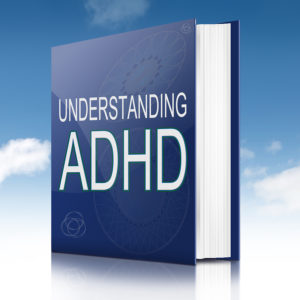
Your prefrontal cortex directs behavior, thought and feeling which are all associated with working memory. This fundamental cognitive function is what most “healthy” people take for granted, are what make up executive function.
This executive function and working memory give you the ability to:
- Regulate your attention
- Inhibit inappropriate behavior and thought
- Monitor your actions
- Plan and organize your future
If you can’t focus on the task at hand, blurt things out at inappropriate times, have little control over your emotions or actions, and can’t seem to stick to that careful set of goals you wrote down, you may be ADHD.
The Role of Norepinephrine and Dopamine in ADHD
Norepinephrine and dopamine are the primary neurotransmitters involved in ADHD because they play an essential role in attention and thinking.[i]
The “inattentive” type of ADHD is related to issues with the norepinephrine, and the “hyperactive and impulsive” type of ADHD is linked to dopamine dysfunction.
These two neurotransmitters work in concert to maintain alertness, increase focus, sustain thought, effort, and motivation. The only difference between the two is the presence of a hydroxyl group. And dopamine is the precursor to norepinephrine synthesis in your brain.[ii]
Much of what we read about ADHD focuses on dopamine’s function in your brain. But norepinephrine (NE) plays a critical role in activating your reaction to events. And how you respond to the event.[iii] NE is essential for collecting information coming in through your senses. And then modulating your brain’s response.
Any disruption in this NE system can result in ADHD, Post Traumatic Stress Disorder (PTSD), sleep disorders and more.[iv]
For example, NE working with postsynaptic α2-adrenoceptors (α2-AR) in your brain play an essential role in helping you focus and eliminate distractions when you’re paying attention to something.[v]
This is just one example of what goes wrong with ADHD brain function. My point in bringing this all up is not to overwhelm you with neuroscience.
But to make clear that simply suggesting too much or too little of a single neurotransmitter like dopamine cannot explain the complexity of ADHD.
So using a nootropic like L-Tyrosine to amp up dopamine in your brain is often not enough to take care of ADHD symptoms. Or using Adderall with someone who has a problem with alpha2-receptor binding with norepinephrine may not get much benefit.
This is the reason that experimenting with various stimulants and/or nootropics is often the only way to find a long-term solution to keeping ADHD under control. And why some respond better to a drug like Ritalin and not as well to Adderall. Or vice versa.[vi]
And recent research shows serotonin and acetylcholine are involved too. Mostly the “hyperactivity” part of ADHD which includes movement, inattention, and impulsivity.[vii]
Smart Drugs Used to Treat ADHD Symptoms
If you are truly and clinically ADHD or ADD, it is unlikely that optimizing your diet, getting plenty of sleep, using nootropics, and exercising regularly will get the symptoms of ADHD under control.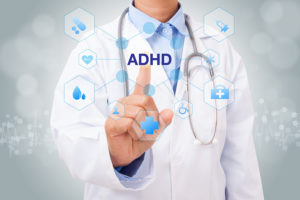
The most severe forms of ADHD often benefit from using prescription medication. Otherwise known as “smart drugs” in some circles, these meds are typically amphetamines or methylphenidate.
The amphetamine-class of ADHD prescription drugs includes Adderall (75% dextroamphetamine salts and 25% levoamphetamine salts), Dextroamphetamine, and Vyvanse (Lisdexamfetamine).
The methylphenidate-class of ADHD medications includes methylphenidate (Ritalin) and its variants like Concerta, and Focalin.
Adderall and Ritalin both work with dopamine and norepinephrine in your brain. But through different mechanisms of action.
Ritalin is a pure uptake inhibitor of dopamine and norepinephrine without any other presynaptic activity.[viii] Adderall on the other hand, has additional presynaptic activity, releasing dopamine and norepinephrine from presynaptic neurons.
The idea for the last 60 years or so, has been if we could boost dopamine and norepinephrine in the brain, ADHD symptoms would go away. As long as we’re taking the medication.
Why Prescription Attention Deficit Hyperactivity Disorder Meds Often Don’t Work
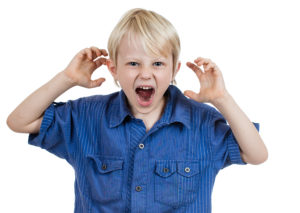 In an ideal world, taking one pill 2 or 3 times a day to treat ADHD would put your life back on track. And help you function like a ‘normal’ person.
In an ideal world, taking one pill 2 or 3 times a day to treat ADHD would put your life back on track. And help you function like a ‘normal’ person.
But real-world results often don’t work out as well as theory. For several reasons. For example, what if there’s not enough dopamine or norepinephrine in your brain in the first place? Then stimulants will not work as well as planned because they haven’t the neurotransmitters in place to work with.
You could also have problems with not enough or damaged neuroreceptors. Natural aging processes can slow blood flow or inhibit the production of neurotransmitters. A lack of acetylcholine could prevent your neurotransmitters from doing what they were designed to do.
This is where nootropics can help save the day in treating the symptoms of ADHD.
Optimizing Dopamine & Norepinephrine
 One of main culprits contributing to ADHD symptoms is a lack of dopamine (DA) and norepinephrine (NE) in your brain. Or your brain is not using the available DA and NE effectively.
One of main culprits contributing to ADHD symptoms is a lack of dopamine (DA) and norepinephrine (NE) in your brain. Or your brain is not using the available DA and NE effectively.
Stimulants like Adderall and Ritalin work to boost levels and use of these two critical neurotransmitters.
Production of dopamine and norepinephrine in your body and brain follows this metabolic pathway:
Phenylalanine → Tyrosine → L-DOPA → Dopamine → Norepinephrine
Dopamine is converted to norepinephrine by the enzyme dopamine β-monooxygenase, with O2 and ascorbic acid (Vitamin C) as cofactors.
Norepinephrine can be further converted into epinephrine by the enzyme phenylethanolamine N-methyltransferase with SAM-e as cofactor.
Nootropics to boost dopamine and norepinephrine include:
- L-Tyrosine – L-Tyrosine is the precursor to the synthesis of dopamine in your brain. L-Tyrosine enhances working memory, executive function, creative flow states, reduces stress, improves mood and is anti-anxiety.Suggested dosage of L-Tyrosine or NALT for ADHD is 350- 500 mg twice per day. I successfully stack 500 mg of NALT or L-Tyrosine 3-times per day. Once each time I dose with Ritalin, and a last dose mid-afternoon to prevent a stimulant crash later in the day.
- Mucuna Pruriens (L-Dopa) – Mucuna works as an antioxidant and heavy metal chelator, improves memory & cognition, reduces depression and boosts libido.L-Dopa is also the direct precursor to dopamine. Suggested dosage of Mucuna Pruriens is 250 – 500 mg per day. But if you’re just starting out with nootropics, I highly recommend using L-Tyrosine or NALT instead of Mucuna Pruriens. Because Mucuna can be more difficult to dose since it directly stimulates the production of dopamine. L-Tyrosine and NALT are more ‘forgiving’ when it comes to dosage.
- N-Acetyl L-Cysteine (NAC) – NAC is an amino acid that regulates the amount of glutamate and dopamine in your brain.NAC can be used to address the symptoms of ADHD. And may even help eliminate some of the negative side effects associated with prescription ADHD stimulants. Suggested dosage of NAC is 600 mg 3-times per day.
- Phosphatidylserine (PS) – PS can help improve alertness, attention, cognition, memory, recall and mood, and lower anxiety. All issues associated with ADHD.Phosphatidylserine is a phospholipid component of the membrane encasing every one of your brain cells. PS helps maintain the fluidity and permeability of brain cells. Improving the flow of dopamine and acetylcholine. Suggested dosage of PS is 100 mg 3-times per day.
- Pine Bark Extract – Pine Bark extract helps prevent decreases in dopamine and norepinephrine. And the glutathione (GSH) and GSH-disulphide reductase (GSSG-R) ratio. Neurotransmitter problems which contribute to hyperactivity in ADHD.Pine Bark extract also helps boost blood flow in the brain by increasing nitric oxide which helps dilate blood vessels. And it helps reduce oxidative stress, membrane damage, DNA damage, inflammation, and glycation.I’ve found one of the most potent forms of Pine Bark extract comes in both Mind Lab Pro® and Performance Lab® Mind.
A word of caution here in boosting the catecholamines dopamine and norepinephrine. Too much of either is not a good thing. In fact, excess levels of either will throw your neurotransmitter levels out of balance. And can cause anxiety, insomnia and panic attacks.
Taming Hyperactivity with Nootropic Supplements
The “H” in ADHD stands for hyperactivity. Boosting levels of dopamine and norepinephrine can help balance out hyperactivity. And help calm and focus your mind. But often simply boosting or balancing these neurotransmitters is not enough.
Recent studies show that serotonin and dopamine interaction also play a role in ADHD.[ix] Serotonin is involved in the uptake, synthesis and breakdown of dopamine in your brain. Problems with serotonin seem to contribute to behavior and impulse control.
Much more research needs to be done in this area of ADHD. But we can help control and balance serotonin with nootropics.
- 5-HTP – This amino acid is synthesized from the amino acid tryptophan. And 5-HTP is the immediate precursor to serotonin in your brain.5-HTP can help relieve anxiety and depression, fibromyalgia, insomnia, migraines and likely the hyperactivity, depression and anxiety associated with ADHD. Suggested dosage of 5-HTP is 50 mg up to 3-times per day. Please see my dosage notes and warnings before you try supplementing with 5-HTP.
- Ginseng – Ginseng helps calm anxiety, and boost attention, concentration and memory. Ginseng provides neuro-protective effects on the dopaminergic-pathway which can help with ADHD. And ginseng is a serotonin and norepinephrine reuptake inhibitor (SNRI).Suggested dosage of Ginseng is 100 – 400 mg per day.
- L-Theanine – L-Theanine commonly found in green tea helps boost alpha and theta brain waves, is anti-anxiety, boosts cognition and memory and reduces insomnia.L-Theanine also helps boost GABA, serotonin and dopamine levels in your brain. Suggested dosage of L-Theanine is 150 mg 2 – 3-times per day.
- Rhodiola Rosea – Rhodiola Rosea helps improve alertness, energy, memory and mood, is anti-anxiety and antidepressant, reduces fatigue and boosts memory and concentration.Rhodiola influences serotonin and norepinephrine levels in your brain. Suggested dosage of Rhodiola Rosea extract is 150 – 200 mg per day.
- Saffron – Saffron acts as a dopamine and norepinephrine reuptake inhibitor. Similar to how Ritalin works. A randomized double-blind study was conducted with 54 children 6-17 years old who were given 20 – 30 mg methylphenidate or 20 – 30 mg Saffron per day for 6 weeks. At the end of the study researchers concluded, “Short-term therapy with a saffron capsule showed the same efficacy compared with methylphenidate.”Suggested dosage of Saffron is 30 mg per day.
- Vitamin B6 (Pyridoxine) – Vitamin B6 helps your brain make serotonin, norepinephrine and melatonin. Suggested dosage of B6 is up to 100 mg per day.
- Vitamin B9 (Folate) – Folate (NOT folic acid) as a nootropic helps your brain make dopamine, epinephrine, norepinephrine and serotonin. Suggested dosage of Folate is 400 mcg per day.
- Vitamin B12 (methylcobalamin) – is a cofactor in the synthesis of neurotransmitters acetylcholine, dopamine, GABA, norepinephrine, and serotonin. Suggest dosage of B12 is 100 mcg per day.
B-Vitamins are Critical in Controlling ADHD
Take note that several of the B-Vitamin group are involved in the production of the neurotransmitters involved in ADHD. I recommend adding a good B-Vitamin Complex that include methylfolate (not folic acid) and methylcobalamin (not cyanocobalamin) to your stack. Both in a pure nootropic stack as well as when using any of the ADHD prescription stimulants.
But it’s not only the B-Vitamins that are required for a healthy, fully functioning brain. We also need each of the 13 vitamins and 13 minerals needed for everything from blood flow, neurotransmitter synthesis and release, brain signaling, and neuroprotection.
I’ve found the easiest way to make sure my ADD brain gets all the vitamins and minerals it needs every day is to also use a multivitamin/mineral supplement.
The best I’ve found so far is the multivitamin called Performance Lab® NutriGenesis Multi. It’s better than the “raw-food” multi I was using for years. And makes a difference I can actually feel.
But please note that this multi is in addition to a B-Vitamin Complex because the ADHD brain needs more of these critical nutrients than what is normally in any good multivitamin.
The Role of Acetylcholine in ADHD
Researchers at Vanderbilt University Medical Center discovered that there are three types of ADHD.
We’ve already covered the “inattentive” type that is related to issues with the norepinephrine transporter gene. And the link to the dopamine transporter gene in the “hyperactive and impulsive” type.
But the research team now report that a variation in the choline transporter gene is associated with a “combined” type of ADHD. Symptoms include both inattention and hyperactivity/impulsivity.
Choline is required to synthesize acetylcholine (ACh) which is needed for memory, motor-control, focus, learning, concentration, and cognition.
If you have the “combined” type of ADHD it’s likely due to a mutation in this choline transporter gene variation.
Nootropics to boost acetylcholine include:
- ALCAR (Acetyl-L-Carnitine) – ALCAR donates a methyl group in the presence of Coenzyme-A for the synthesis of acetylcholine. And it’s also a shuttle transport for fatty acids through brain cell membranes. It shuttles fatty acids into mitochondria for ATP synthesis, and shuttles toxic byproducts out.
Research from the Linus Pauling Institute shows ALCAR will restore mitochondrial function, replenish age-related changes to mitochondrial structure, and helps replenish acetylcholine levels to your brain and body.
And other studies show that ALCAR stimulates nerve growth factor. Helping support survival and growth of neurons. Which is particularly important for the ADHD brain and especially when using prescription stimulants that may be tough on neurons.
- Alpha Lipoic Acid (R-LA) – Alpha Lipoic Acid increases acetylcholine production by activation of choline acetyltransferase and increases glucose uptake. This process supplies more Acetyl-CoA for the production of acetylcholine.
Alpha Lipoic Acid enhances insulin-stimulated glucose transport and metabolism for better brain cell performance. And R-Lipoic Acid provides strong antioxidant support because it helps regenerate and recycle existing antioxidants in your brain including Vitamins C & E, glutathione, and CoQ10.
I’ve since switched the ALCAR supplement in my ADD stack to Performance Lab® Energy because this pre-formulated energy stack contains my preferred dose of ALCAR. But note that I also take another 500 mg of ALCAR with L-Tyrosine late afternoon to prevent a stimulant crash.
Performance Lab® Energy also contains Alpha Lipoic Acid and ALCAR which helps my ADD brain produce acetylcholine.
- CDP-Choline (Citicoline) – Citicoline helps synthesize phosphatidylcholine (PC), a major phospholipid found in brain cell membranes. And provides choline for the synthesis of acetylcholine while providing antioxidant activity.
The CDP-Choline (Citicoline) in my ADD stack is supplied by Mind Lab Pro® which is the base of my nootropic stack.
But a suitable alternative to MLP is Performance Lab® Mind which contains the branded form of citicoline called Cognizin®.
Performance Lab® Mind and Mind Lab Pro® also contain L-Tyrosine, Phosphatidylserine (PS), and Maritime Pine Bark extract.
Repairing Neuroreceptors Needed to Control ADHD
One of the issues with neurotransmitters and ADHD are damaged or non-existent receptors. Dopamine, norepinephrine and serotonin have less receptors to bind to for cognition and mood control.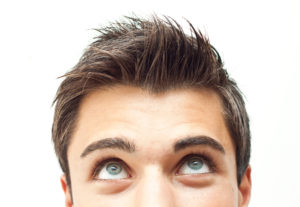
Once again, nootropics come to the rescue in helping control ADHD. You can add one of these nootropics to your stack to help boost neuron and receptor health.
- Ashwagandha – This adaptogen, Ashwagandha helps reduce anxiety and depression. And helps reconstruct axons, dendrites and synapses involved in neurotransmitter signaling in your brain.Suggested dosage of Ashwagandha extract is 250 – 500 mg per day.
- Bacopa Monnieri – Bacopa helps boost memory and cognition, improves mood, and reduces stress. This adaptogen affects brain levels of acetylcholine needed for neurotransmitter signaling.And the two active components of Bacopa Monnieri called bacosides A and B not only improves signaling of electrical impulses between neurons in your brain. Bacosides also help rebuild damaged neurons. Suggested dosage of Bacopa is up to 450 mg per day.
- Lion’s Mane – Lion’s Mane Mushroom is known for stimulating Nerve Growth Factor, improving cognition and memory, and relieving depression.Lion’s Mane stimulates the repair and creation of neurons in your brain. Neurons needed for dopamine and norepinephrine to control ADHD. Suggested dosage of Lion’s Mane Mushroom starts at 500 mg per day. Note: that there’s an effective 500 mg dose of Lion’s Mane full-spectrum fruiting body in each dose of Mind Lab Pro®
- Noopept – Noopept helps boost cognition, memory, learning, perception, logical thinking and mood. Noopept increases Nerve Growth Factor, and Brain-Derived Neurotrophic Factor (BDNF) critical for neuroplasticity and Long-Term Potentiation critical for long-term memory.Noopept also prevents the release of excess glutamate in your brain. Providing potent neuroprotection for neurons and reducing damage. Suggested dosage of Noopept is 10 – 30 mg per day.
Please note that I haven’t linked through to supporting clinical studies for each of the nootropics I listed above. But you can click through to my full review of each nootropic for extensive research supporting each supplement.
Nootropics for Kids
ADHD and ADD is most often diagnosed in children. The latest statistics (2011) from the CDC in the USA shows about 11% of children 4 – 17 years of age (6.4 million) have been diagnosed ADHD.[x] And that’s just for the USA.
Although ADHD is usually first diagnosed in children, it often lasts into adulthood. I sometime wonder how my life would have been different if I had been declared ADD when I was a kid.
But it wasn’t until the late 1960’s that the American Psychiatric Association formally recognized ADHD as a mental health disorder. I wasn’t declared Adult ADD until much later.
The thing is many parents are wary about putting their children on powerful, prescription ADHD meds. Kids’ brains continue to develop until your early 20’s. So is it a problem messing with brain chemistry at such a young age? Only time will tell and if the benefits outweigh any potential risk.
Hence the reason why parents are looking for ‘natural’ alternatives like nootropics to treat ADHD in children. But are nootropic supplements any safer than prescription stimulants?
Common sense tells me that using L-Tyrosine could be safer than Ritalin for boosting dopamine. And Rhodiola Rosea could be safer than stimulants or antidepressants for taming hyperactivity.
But many children with ADHD, natural supplements may not be enough. I’m not a doctor, and don’t even play one on TV. I’m an ordinary biohacker who has learned as much as I can to help myself. And fix my own cognitive performance issues. Including Adult ADD.
So I highly recommend you find and work with an open-minded psychiatrist with your child. You may be pleasantly surprised to find you may be able to reduce or eliminate prescription ADHD meds altogether to enhance cognitive functions. And maybe not. But the long-term health of your child could be worth the time investment to find out.
In Summary
I’ve been wanting to write this post since I started Nootropics Expert®. If you are ADHD or ADD, I hope you found this useful. And I’d appreciate your feedback, and share your experience with treating ADHD with nootropics in the comments section of this post below.
Please share this post with anyone you think would benefit. Including discussions about nootropics for ADHD on reddit or Longecity.
One final note. Neurotransmitter balance is key to taming ADHD. I strongly caution you to take it slow if you’re just starting out with nootropics. Carefully read each of the extended articles in the List of Nootropics you are considering trying.
You need to be careful about side effects, prescription drug interactions, dosages and how your body reacts to each supplement to ensure healthy brain function.
But I’m confident that with careful planning and a long-term commitment, your cognitive enhancement will be just as successful as I have been in living and thriving with my Adult ADD.


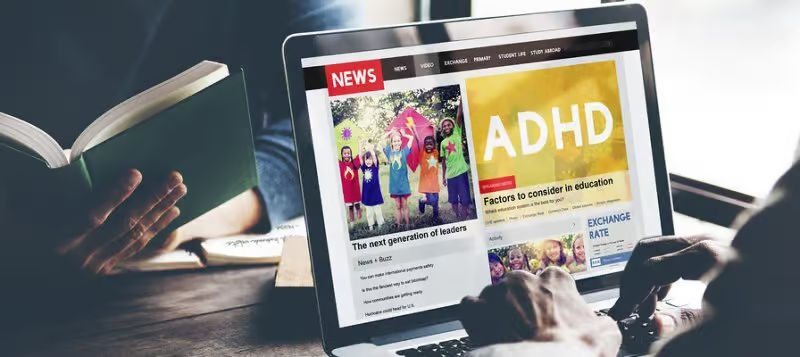





Join The Discussion - 851 comments
Charlie
April 26, 2021
Hi, can you help me understand why this is better than just taking a SNRI like venlafaxine please? I have anger, anxiety and a bit of depression related to menopause hormone changes and have tried many natural things ins St Johns wort, ashwadanga, rhodiola, nothing works other than venlafaxine but im
Not sure it is healthy. What is the difference in more detail please? Thank you
David Tomen
April 26, 2021
Charlie, if venlafaxine works for you then I suggest looking up its mechanism of action. And then looking for natural supplements that also do the same thing. Or as close as you can get to it. That instead of guessing when choosing natural supplements.
Venlafaxine is a serotonin-norepinephrine-dopamine reuptake inhibitor (SNDRI) which means it increases serotonin, norepinephrine and dopamine in your brain. So look for supplements that also increase each of those neurotransmitters. Try different supplements that do that until you find the ones that work for you.
St. John’s wort (https://nootropicsexpert.com/st-johns-wort/) comes that closest in action compared to that drug.
Charlie
April 27, 2021
Hi! Thank you for your response! Is it not good to take venlafaxine though? I would much prefer ‘natural’ supplements but am unsure how bad SNRI or SSRIs are. St Johns wort is pretty good but even at 1000mg, a “light” version of this
David Tomen
April 30, 2021
Charlie, I cannot advise you one way or the other re. Venlafaxine because I am not a doctor. Don’t even play one on TV! I highly recommend learning as much about the drug as you can. This is a good place to start: https://en.wikipedia.org/wiki/Venlafaxine. Pay close attention to “Adverse effects” and “Contraindications” and you’ll decide for yourself.
You can achieve similar benefits by using natural nootropic supplements. But it often takes longer and more than 1 or 2 supplements. Nothing is going to exactly mimic the pharmaceutical however except the drug itself.
Charlie
May 11, 2021
Hi David, thank you so much again for your advise and input. What natural nootropics would you recommencbto replace venlafaxine please?
David Tomen
May 12, 2021
Charlie, it is not going to be a direct replacement. But you could try L-Tyrosine for raising dopamine. And L-Tryptophan for raising serotonin. Dopamine during the day and serotonin just before bed.
Daria Ratliff
April 14, 2021
Hi, David
I can’t stop reading your blog! It is like being hit in the head (literally) 🙂
I have 16 years old twins. My boy struggles with energy and motivation. I’m already addressing that after reading your post about motivation and after your suggestions. But here I come again, but this time is about his twin sister.
She has never been diagnosed with ADD and I honestly never thought that she was a candidate, even though I always thought of her being a bit too distracted and not very focused on tasks in general. But overall, her grades are good and she performs sports fairly well (softball, soccer, volleyball), so I never thought that “attention” was an issue.
However, she came to me a couple of months ago saying that she has to work so very hard to focus in school that she gets drained at the end of the day. I felt horrible and asked for how long she’s been like that. She said that she has always felt that, but not until recently that a light bulb went off in her mind: she was reading a post about people struggling with ADD and she felt like she “fits” the description fairly well. The post was about ADD in girls, which seems to be manifested a bit different than in boys.
I do believe that she has a certain degree of focus issues (I also think that this is a bit common in most of us), but what worries me is that she is nearing half of her high school years and the “mental” load is becoming greater. The second thing is that she gets drained at the end of the day, sometimes waking up with headaches.
She has sport induced asthma as well but controls it by taking breaks during the games. We tried the inhalers and they never helped. Gave up on them a long time ago. She manages it by slowing down when it’s about to trigger.
Would you give me some suggestions for her attention/focus issues, especially because she is still young and her brain still developing? I do not want to give her any nootroipcs without knowing that is safe for young brains.
Also, would you suggest a multi-vitamin that is not from MindLab? I just can’t afford them at the moment and if I have to pick one from them, I rather that be a nootropic mix.
Any suggestion will be greatly appreciated. Thank you!
David Tomen
April 15, 2021
Daria, from your description is does sound like ADD or ADHD. Most of the supplements I recommend above are safe for younger people. Just at lower doses.
The basics for ADD/ADHD include: L-Tyrosine, Alpha GPC, ALCAR, DHA, Phosphatidylserine (PS) and a high quality B-Complex.
I wish I could provide a shorter version but there really isn’t because this disease (for want of a better word) is a brain cell signaling and dopamine issue. That list of supplements takes care of that with or without stimulant meds.
That stack will be more expensive than a month of Mind Lab Pro. And honestly, I cannot recommend a “cheaper” nootropic stack. Because it would not work. And while she likely needs a high quality multivitamin, just a multi will not solve this issue.
Daria Ratliff
April 16, 2021
Hi, David
Thank you so much for your answer! I will purchase Mind Lab for a simple reason: it has it all together and it’s probably much simpler than having several bottles and pills.
So, what are the Mind Lab supplements that you would recommend for her ADD along with a multivitamin and B-complex?
You do mention DHA as well.
Thank you!
David Tomen
April 16, 2021
Daria, my basic ADD nootropic stack is: Mind Lab Pro, L-Tyrosine, Alpha GPC, ALCAR, PS, and DHA.
Daria Ratliff
April 19, 2021
David, I have two last questions 🙂
Looking at the multivitamin at Nutrigenesis and seeing all that B vitamins included, do you still think that my 16 year daughter would need an additional B-complex to her ADD stack or just the multi should suffice? The mind lab pro formula for her ADD also has B vitamins, meaning that she should be getting plenty when both combined, at least I think. Thoughts?
About DHA – I read that the ratio should be roughly double of DHA compared to EPA, but should she get the full 1000 DHA a day or half of that should be enough for her?
So for now I am doing Mindlab Pro for her base ADD stack, Performance lab for DHA and also for her multi. The ALpha GPC and Alcar will be from nootropics depot (read great reviews about them).
Thank you!
David Tomen
April 19, 2021
Daria, at 16 the multivitamin will provide enough of the B-Vitamins.
Mind Lab Pro contains some of the B-Vitamins to support the synthesis of dopamine and acetylcholine that MLP supports. They designed that as a standalone nootropic stack making sure it would provide benefit whether or not someone had adequate B’s in their system.
According to my research, and it is ongoing world-wide for Omega-3s – children require as much or possibly more DHA than adults because of their developing brain. Again, I’m NOT a pediatrician and you should research this yourself. But it seems to me that 1,000 mg DHA with about 500 mg EPA is warranted in teens.
MG
April 8, 2021
Hi David, what’s your opinion on Oroxylin A for treating ADHD? Do you think it can cause dependency as its mechanism similar to other addictive smart drugs? Thanks!
David Tomen
April 9, 2021
MG, in vitro studies showed that Oroxylin A inhibits Dopamine uptake similar to methylphenidate (https://pubmed.ncbi.nlm.nih.gov/23371806/) but I highly doubt that it is addictive like prescription stimulants.
Amir
April 4, 2021
Hey David,
What do you know/think about Straterra including how it could work or interact with nootropics. I have been recently diagnosed with ADHD a few months ago at 36 years old. I have been taking Concerta for about a month but I was getting heart issues so I am switching now to Straterra but would also like to supplement with nootropics as well. Would taking your ADHD related list of nootropics work well with Straterra? Your opinion is appreciated.
David Tomen
April 5, 2021
Amir, Strattera is just another stimulant drug and needs dopamine to work properly. You can support its use by using the stack described in the article above.
The recommended dosages vary from person to person so you will need to experiment to get it right. But done well you should find Strattera works better and if you get your timing right you will avoid the stimulant crash later in the day.
And with ongoing brain repair with a supplement like Mind Lab Pro you do not need to worry about the stimulant doing irreversible damage to receptors, synapses and transporters in your brain.
Kim Kelly
March 25, 2021
Hi David. For your nootropics stack do you take the ones listed individually in addition to the Mind Lab Pro and Performance Energy?
David Tomen
March 25, 2021
Kim, yes I take the individual supplements in addition to Mind Lab Pro and Performance Lab Energy.
BUT, it depends on the time of day. For example, PL Energy contains 750 mg ALCAR so I do not take a separate ALCAR dose in the morning. But I do use it at noon. Same goes for the other individual supplements if they are duplicated in either of those stacks.
Alex
March 13, 2021
Hi David,
Thank you so much for all the helpful information (in posts and comment replies). I never post comments anywhere, but I’m getting a bit desperate to improve my current situation. Trying to keep it short…I’m almost 40yrs and was diagnosed with ADD several years ago. I have been on Vyvanse 10mg for the last few. I tried Adderall first, but couldn’t continue because of the negative side effects, and Strattera didn’t work well either. So I switched back to a stimulant, but as a low dose pro-drug. It’s worked somewhat well after almost completely eliminating caffeine intake, but when I take it regularly it really wears my body and brain down, exacerbating health and ADD issues as well as my tendency towards anxiety and depression…which then derails everything in my life.
So, I’ve decided to try adding some nootropics to what I currently take. Right now I take Levothyroxine 100 and a small amount of iodine an hour before breakfast, then with breakfast I take my Vyvanse, Vitamin D, and sometimes a Gaia adrenal health herbal supplement that has rhodiola, holy basil, ashwanganda and a couple of other things. With lunch I’ll take a multivitamin and sublingual b vitamins supplement when I remember. Then in the evening I take another ashwanganda & black pepper supplement, along with topical magnesium to help me sleep.
I want to know how I can add (combinations and possible recommended dosage) what I’ve purchased to make it work the best/not cause problems considering I am sensitive to stimulants. I bought PerformanceLab Mind and the Omega-3, a bacopa tincture, a noopept in liquid form, and because I got confused I also bought an alpha GPC. But I think I read in a comment that I don’t need that since PL Mind includes citicoline, is that correct? I can just return it if that’s the case. Also, is there something you think is missing that would really help?
Sorry for the extremely long post, but I really need to improve how things are going right now. Any info/suggestions would be appreciated.
David Tomen
March 15, 2021
Alex, Use PL Mind in it the AM. Then try adding 500 mg L-Tyrosine in the AM and noon. 300 mg Alpha GPC at noon. 500 mg ALCAR AM and noon. 1,000 mg DHA in the AM (3 gelcaps of these: https://bit.ly/3q98chL).
Get yourself a decent Multi (https://bit.ly/347dm5M). If you crash late afternoon repeat your L-Tyrosine and Alpha GPC. BTW, you also use L-Tyrosine to make thyroid hormone.
Alex
March 18, 2021
Thanks for all the suggestions! I did know about L-Tyrosine and thyroid hormone. That might help a bit too since I no longer have a thyroid to produce it.
One last question, do you think noopept would be a useful addition to this stack or not?
David Tomen
March 18, 2021
Noopept may be useful but I suggest ignoring it for now until you nail the rest of your stack and get it working.
Alex
March 22, 2021
Makes sense. Thank you!
Vytautas
March 13, 2021
Hello, what would you recommend on stimulant(amphetamine) crash? Thanks.
David Tomen
March 13, 2021
Vytautas, to prevent a stimulant crash I personally use 500 mg L-Tyrosine, 500 mg ALCAR, and 300 mg Alpha GPC.
Vytautas
March 18, 2021
Would citicholine work as well? If I’m taking Concerta XR instead, how much of each nootropic would be optimal to use and at what time to prevent comedown? Thanks.
David Tomen
March 18, 2021
Vytautas, “how much of each nootropic”, “and at what time” is in the yellow box near the top of this page above. And yes, citicoline can be used in place of Alpha GPC. You do not need both.
Vytautas Jusis
March 18, 2021
Can choline barbitrate work as a substitute though?
David Tomen
March 18, 2021
Choline bitartrate cannot cross the blood-brain barrier and get into your brain. So no, it’s not a substitute.
Andrew
March 11, 2021
I have been diagnosed with ADHD in my 50s and have just begun on a low dose of Ritalin. After reading on several sites about the benefits of L Tyrosine I bought some. Since then I have also read on several sites that L Tyrosine has no benefit for ADHD, so I am wondering where you got your information from? You state that it kept your dopamine levels high. How was this measured?
I am a prove it to me type person and am starting to doubt some of the claims made about various supplements. Where is the science to back this up, rather than repeated claims I am reading over multiple sites?
David Tomen
March 12, 2021
Andrew, everything that I write and publish on Nootropics Expert is backed up by links to peer-reviewed clinical studies. It’s the way I do it and honestly can’t comment on “several other sites”. This is one of the reasons why Nootropics Expert has the reputation it has.
You can’t measure dopamine unless we autopsy your brain. Which I think you’d find inconvenient. Dopamine is manufactured in your brain. Measuring blood levels of dopamine is a useless exercise.
With enough experience you can feel the increase in dopamine. L-Tyrosine (https://nootropicsexpert.com/tyrosine/) is a precursor to the synthesis of dopamine. When you take L-Tyrosine as a supplement your brain uses the enzyme tyrosine hydroxylase to convert L-Tyrosine into L-DOPA. Decarboxylation of L-DOPA results in synthesis of the neurotransmitter dopamine.
You either get L-Tyrosine from food or a supplement. That is the only way you can make dopamine in your brain. No L-Tyrosine means no dopamine.
Anyone who claims that L-Tyrosine has no benefit for the ADHD brain has no idea what they’re talking about.
Andrew
March 12, 2021
Hi David,
Thanks for your reply. Your article is logical but when you look at studies on ADHD the evidence isn’t there. The link between dopamine and ADHD is not yet understood. The study I first read was one that you cite in your reference list (from 1988) but in the abstract it says “the authors hypothesized that tyrosine, which has been shown to increase catecholamine synthesis, would be beneficial in the treatment of ADD. None of the subjects, however, showed any significant improvement with tyrosine.”
https://pubmed.ncbi.nlm.nih.gov/3284877/
Also from Livestrong and other sites which has a good reference list;
“additional research studies have come to the same conclusion: supplementing with additional L-tyrosine does not appear to significantly improve the symptoms suffered by either adult or child ADHD patients.”
Thanks,
Andrew
David Tomen
March 13, 2021
Andrew, all I’m sharing with you is my experience and that of thousands who come to this site.
I’m not going to get into a big debate about this. But think about how Ritalin and Adderall work and their mechanism of action in the human brain. Logic tells me that increasing dopamine levels using L-Tyrosine should help with ADD and ADHD. And in real life it does.